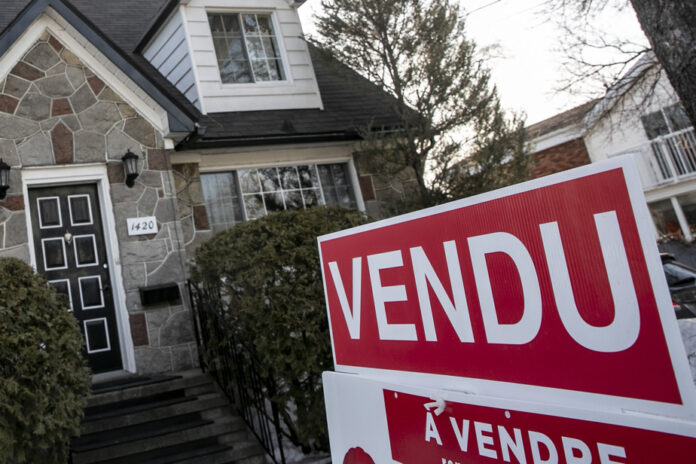(Toronto) Real estate watchers say the new mortgage code of conduct promised in the federal budget will help Canadians facing financial hardship, but they still say the economic plan lacks necessary measures for housing affordability. accommodation.
The code of conduct announced Tuesday aims to ensure that federally regulated financial institutions provide fair and equitable access to mortgage relief measures for people who are struggling to repay their mortgages due to high interest rates.
This would protect these individuals from unnecessary penalties, internal bank charges or interest charges, and allow them to extend amortization periods beyond 25 years, adjust payment schedules and make lump sum payments. .
The code of conduct is “good news” for people with adjustable rate mortgages facing financial burdens, said Sherry Cooper, chief economist at Dominion Lending Centers.
“If banks can extend remaining amortizations when borrowers renew (their loan), the strain on their portfolios will be significantly less,” she wrote in a note to investors.
However, Ms. Cooper felt that the overall budget offered “not much for affordable housing” and mostly listed “a long list of things” the federal government had already taken.
Drawing on the measures announced in last year’s budget, the government discussed the tax-free savings account for first-time home buyers, which will come into effect next month, the ban two years for non-residents to buy residential properties and the $4 billion Housing Acceleration Fund, which plans to create at least 100,000 net new homes.
Toronto real estate broker Cailey Heaps agreed that the mortgage code of conduct would be helpful because it gives mortgage lenders the opportunity to find solutions, “hopefully allowing more Canadians to remain homeowners and invest in their home.
“In today’s market, the reality is that if Canadians lose their homes, it can take a generation to find a home, which is devastating,” she explained in an email.
However, Ms Heaps lamented the budget’s lack of support for housing supply, and the way it catered to corporate investors.
“There is a widespread perception that corporate investors are hurting affordable housing, but the federal government is not investing meaningfully in rentals, so someone has to step in and fix the problem,” Ms. Heaps said.
Instead, she sees corporate investors “taking the risk” and, in turn, trying to profit from their work.
“If corporate investors can help by creating more housing, we should help them and allow them to solve a problem where the government cannot,” she argued.
“It is also reasonable, if they benefit, to ask them to contribute by further increasing the density for intermediate housing. »
Mid-range housing is a term used to describe mid-density housing like plexes and apartments, which are more accessible to middle-class families and first-time buyers.
Ottawa’s budget acknowledges that large corporate investors hold a “significant” share of rental housing in Canada, at a time when housing costs are rising.
Rentals.ca recently found that asking rents in Canada rose 9.7% annually to an average of $1,984 in February.
For the same month, the Canadian Real Estate Association noted that the national average home price was $662,437, down nearly 19% from the same month a year earlier. . However, on a seasonally adjusted basis, the national average price reached $634,830, up 1.7% from January.
“The Government is committed to ensuring that the activity of investors, particularly those who own a significant number of investment properties, makes housing in Canada more affordable, not less affordable, and will consider s ‘it must rebalance the housing market in favor of Canadians looking for a place to live,’ the budget says.















